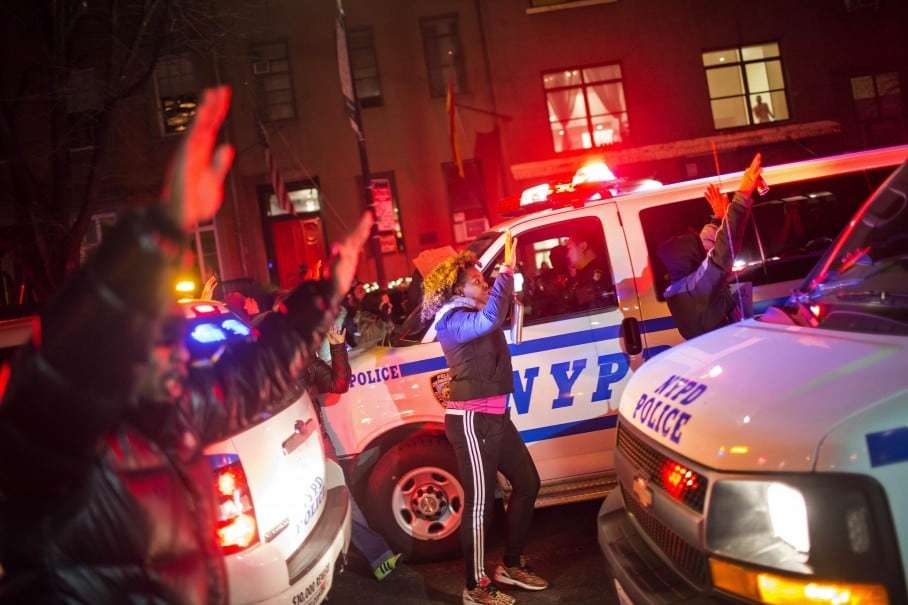The Volokh Conspiracy
Mostly law professors | Sometimes contrarian | Often libertarian | Always independent
Should the N.Y. attorney general investigate N.Y. police killings?
Last Thursday, I suggested that state attorneys general were better positioned to investigate allegations of police killings than are local district attorneys. Local DA's, I argued, are perceived as being too friendly towards - and too reliant upon - local police officers to conduct an investigation into police-caused deaths that is perceived to be objective. And I noted that in some jurisdictions such a change could be accomplished without much ado - such as New York, where caselaw already authorizes the governor to substitute the attorney general for DAs in criminal investigations.

Perhaps New York Attorney General Eric Schneiderman (D) is a Volokh Conspiracy reader, because on Monday he asked New York Gov. Andrew Cuomo (D) for authority to investigate deaths at the hands of police. In a letter to the governor, Schneiderman cited the same caselaw I had cited for the proposition that broad authority exists for the governor to place the attorney general in charge of criminal investigations. Schneiderman said that cases like the death of Eric Garner had left New York's minority community "with the belief that our criminal justice system has both unjustly targeted and inexplicably failed them." He cited a public "crisis of confidence" that prosecutors cannot set aside "the close working relationship between the county District Attorney and the police officers he or she works with and depends on every day." Schneiderman asked Cuomo to immediately take executive action allowing the AG's office to take all police killings of unarmed civilians out of local prosecutors' hands until the state assembly can pass legislation permanently addressing the issue.
Schneiderman's ideas is a good one. It would provide greater public confidence that deaths caused by police are fairly investigated. The issue is not whether local DAs are personally "committed to ensuring equal justice under the law," as Brooklyn DA Kenneth Thompson said in opposing the idea. The issue is a structural one, and local DAs have a built-in perception of bias because of their close working relationships with local police departments. Patrolmen's Benevolent Association President Pat Lynch also criticized the idea, arguing that "[t]here is absolutely no reason to alter the existing system because, if the rule of law and rule of evidence as they stand in the State of New York are followed dispassionately and honestly, then the outcome will be right and just regardless of what office handles a case." Lynch is correct that if the rules are followed dispassionately and honestly, then just outcomes will result. And my own view is that very, very few outcomes will be different if the AG investigates rather than the local DA. But if a more distant authority - the attorney general - investigates these cases, the public will simply be more likely to accept the decision.
I hope that Scheiderman's proposal gets serious consideration by Governor Cuomo (although it would be better done, as Schneiderman himself recognized, through permanent legislative action). Whatever else may be said about the public protests in New York, they demonstrate serious doubt about the fairness of existing procedures. And as part of any reform, Cuomo and Schneiderman should address what is obviously the biggest problem with New York's current system: the total lack of transparency into what evidence investigators found. We still know very little about the Eric Garner case - other than that the grand jury found the evidence is insufficient.
The governor should instruct the AG to investigate police-caused deaths. If charges are filed, the ensuing public proceedings will reveal what happened. And if no charges are filed, the AG should issue a full report into the circumstances. Police officers regularly make split-second decisions about the need to use deadly force. The public needs assurance that police are making those judgments correctly. For those who think that police generally act properly, thorough and independent investigation into police-caused deaths is something to be welcomed, not feared.


Show Comments (0)